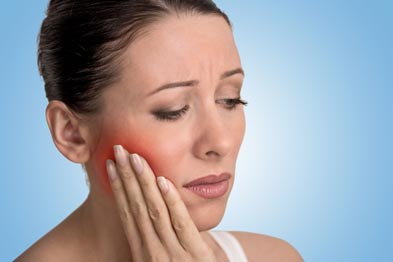Bruxism is a condition where you unconsciously grind or clench your teeth. It can happen when you are awake (awake bruxism) or asleep (sleep bruxism). The underlying cause of bruxism can be due to stress, medications, or behavioral reasons. It can occur in any person at some point in life. If you’ve been wondering whether you need treatment for bruxism, here are some signs that could help answer your questions.
1. Teeth Pain
Grinding your teeth is the primary symptom of bruxism. If you have tooth pain or feel your teeth getting loose, it may be a symptom of bruxism.
2. Headaches When You Wake Up
By clenching your jaw and grinding your teeth for a long time, your muscles, joints, and tendons in your face might get overworked. Doing so can increase tension in your muscles and cause dull headaches that do not seem to go away.
3. Teeth Damage that You Cannot Explain
Bruxism eventually wears down your teeth. It can cause tooth damage that can look like loose teeth, fractured teeth, and sometimes even loss of teeth. If you notice such damage and cannot point out the reason, it might be bruxism. However, consult your dentist for a proper diagnosis.
4. Disturbed Sleep
Bruxism can sometimes be viewed as a sleep-related movement disorder. Especially in the case of people suffering from sleep bruxism, muscle stress and other bruxism symptoms may disrupt their sleep.
5. Ear Aches
The structure of the face is such that your teeth are positioned near the ear canal. So sometimes, pain in your jaw can transfer to your ear and vice versa.
6. Jaw Pain or Facial Soreness
Jaw pain is one of the apparent signs of bruxism. It can even lead to a condition called temporomandibular disorder (TMD), which is a condition that affects the movement of the jaw.
7. Pain while Eating
If you experience pain when chewing hard foods like nuts or popcorn, it could be because your jaw muscles are stressed. Your muscles could be overworked due to excessive clenching and grinding.
8. Someone Notices You Grind Your Teeth
Sometimes, while you may remain unaware of your teeth grinding behavior, your loved ones could notice you doing so. When someone tells you about it, try to pay conscious attention to your symptoms. Talk to a dentist if you’re unsure about whether you have bruxism.
If you’re exhibiting any of these signs, consult a dentist to see if you have bruxism. Discuss your treatment options before making an informed choice for your long-term health. At East Lansing Modern Dental, we offer the best-in-class dental services. Talk to our experts to learn more about how you can ensure your oral health. Book an appointment with us! If you have further questions for us, you can call us at +1 (517) 210-0428 or contact us online.

